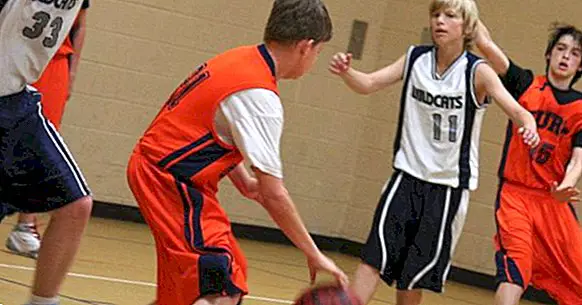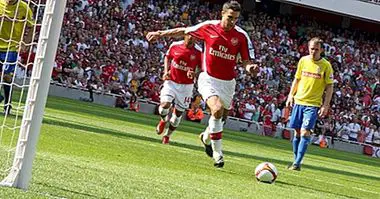Discover the 3 blunders made by sports coaches
Most common mistakes of the coaches
The collective sport in the age of training is of fundamental importance in the physical and psychosocial development of the person. The competitive practice may well be an encouragement for the child to grow hand in hand with values such as effort, friendship or personal improvement, it may well be a limiting element if the training methods are not appropriate.
Both in the sport of quarry and in the stage of maturity, the style and techniques used by the coach affect both the athletic performance itself and personal areas such as self-esteem, belonging to the group or the self-perception of competencies . Consequently, one of the main objectives of sports psychology is to detect which practices are positive or negative for athletes to be able to modulate them and obtain a better performance.
In this article I will detail a total of three errors in the management of sports teams that are usually observed in sports competition. These errors are usually based on strategies and methodologies that do not understand the psychological reality of athletes in certain game circumstances. Thanks to the continued study in this field of sports psychology, sports professionals already have the guidelines to reorient training strategies in search of the best results, both sports and group cohesion.
1. Hot Hand / Cold Hand
Very studied in collective sports such as basketball, Hot Hand effect (hot hand) is the sports side of the Player Fallacy in games of chance and cards.
What is the Hot Hand Effect about? When a player has a three-game winning streak, the coach tends to instruct the other players to make the gleeful player to take the next shot. It is a common error because, although it is counterintuitive, the chances of success in the present release are not increased by past events.
Beyond a positive scoring run, the challenge for the coach is to keep a cool head and understand to what extent the gutted player can maintain that level of success, either by a capacity of this to grow up under pressure or, on the contrary , this can be affected by an excess of pressure and euphoria, even forcing throws with the added handicap of defenders more attentive to their movements.
In short, the Hot Hand Effect is nothing more than a cognitive fallacy . The decision to continue betting on the gutted player should not be based on the endorsement that, deceptively, the past events provide.
2. Positive reinforcement
Many of the athletes who read this second point will feel identified with the following sentence: "Guys, if we win the next three matches I invite you to dinner". This offer, pronounced by the coach, may have a small positive effect on the extrinsic motivation of the players. However, it ends up diminishing the intrinsic motivation, due to two reasons:
to) The prize for which the victories are reinforced does not enhance the value of the sports and group growth process but the simple achievement of some purposes . This is interpreted by the athlete as follows: "It does not matter to learn to play, it does not matter the ethics, it does not matter the respect to my teammates and rivals, it only matters to win". Consequently, the final score (dependent also on external circumstances such as the quality of the rivals) is prioritized with respect to the process of technical, tactical, psychological improvement and group cohesion.
b) The prize is shown as something alien to the sport; the sport is interpreted not as an end but as a means. This circumstance also has the effect of reducing the intrinsic motivation of the players.
Positive reinforcement, as we see, should be applied as an extra, and taking the sport itself as motivation. For example, you can try to increase extrinsic group motivation by inviting you to attend a match of a first line team of that same sport (a prize not external to the sport) if they manage to train with good intensity and make a play in learning during games (the process is rewarded, not the result).
3. Authoritarian coach
There is a coach profile that just grant feedback to its players; if only the star player. It is only able to offer negative reinforcements when players fail or do not understand a tactical concept, but it is difficult to see them in the task of correcting with precise and calm instructions.
These practices provoke the team from tactical confusions (such as not knowing why a specific move is used in a particular circumstance of the game), to problems of lack of confidence, which ultimately generate the potential of the players to be significantly reduced.
How can the coach anticipate these problems? Establishing a climate of trust and communication with the players; trying to use corrections in a positive tone if someone makes a mistake, without pointing out guilty and in general maintaining an equal and constructive group dynamics.



















